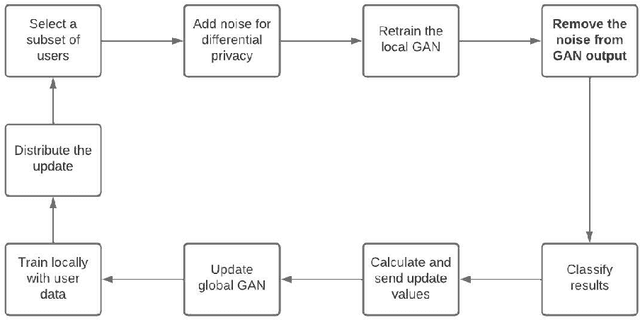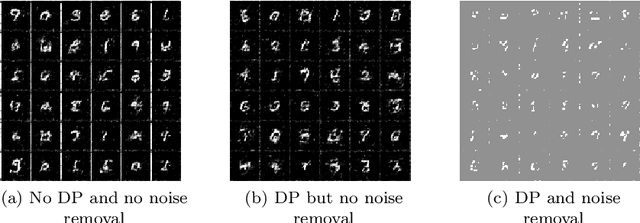Gregor Schram
Using Autoencoders on Differentially Private Federated Learning GANs
Jun 24, 2022



Abstract:Machine learning has been applied to almost all fields of computer science over the past decades. The introduction of GANs allowed for new possibilities in fields of medical research and text prediction. However, these new fields work with ever more privacy-sensitive data. In order to maintain user privacy, a combination of federated learning, differential privacy and GANs can be used to work with private data without giving away a users' privacy. Recently, two implementations of such combinations have been published: DP-Fed-Avg GAN and GS-WGAN. This paper compares their performance and introduces an alternative version of DP-Fed-Avg GAN that makes use of denoising techniques to combat the loss in accuracy that generally occurs when applying differential privacy and federated learning to GANs. We also compare the novel adaptation of denoised DP-Fed-Avg GAN to the state-of-the-art implementations in this field.
 Add to Chrome
Add to Chrome Add to Firefox
Add to Firefox Add to Edge
Add to Edge